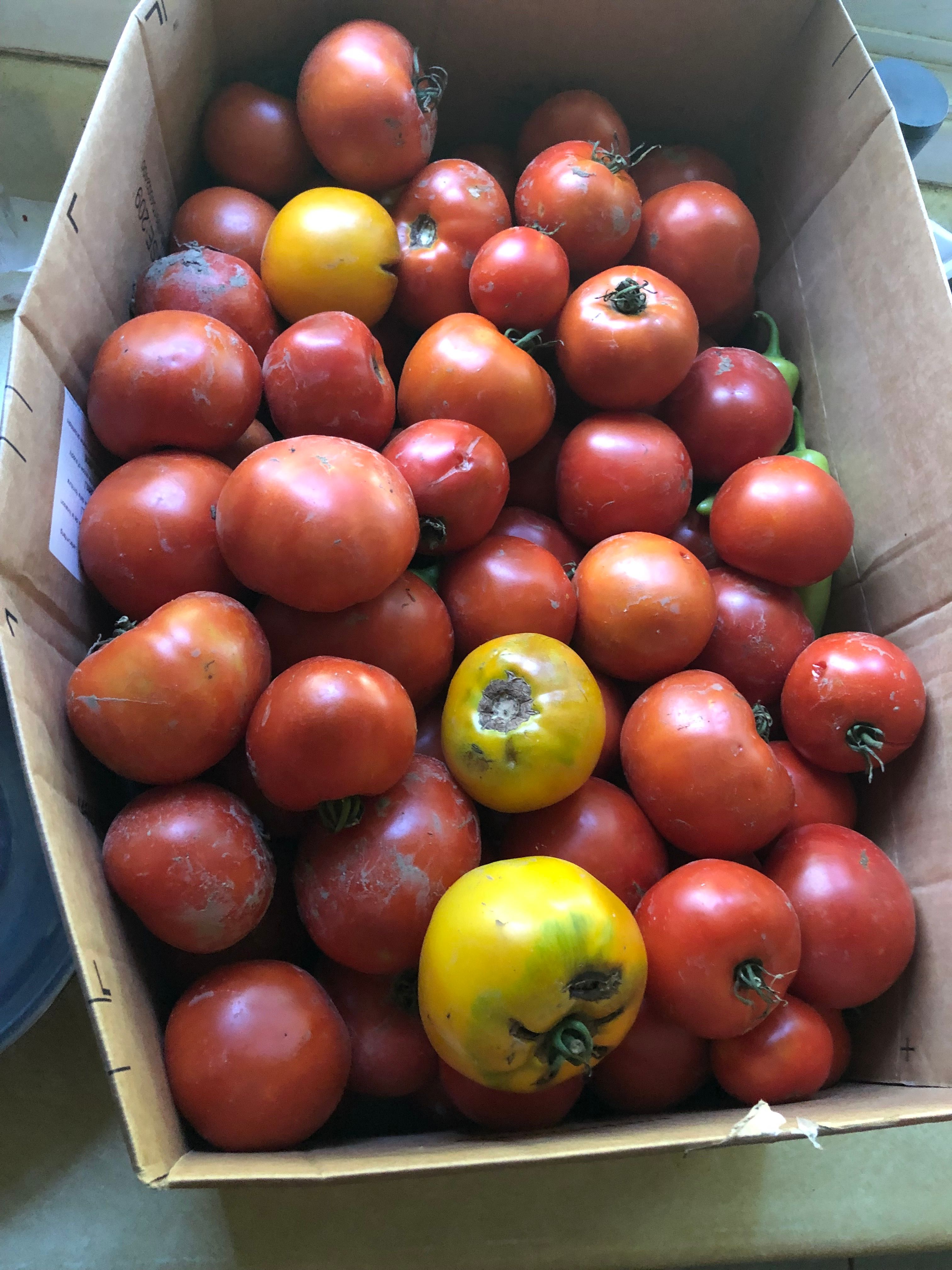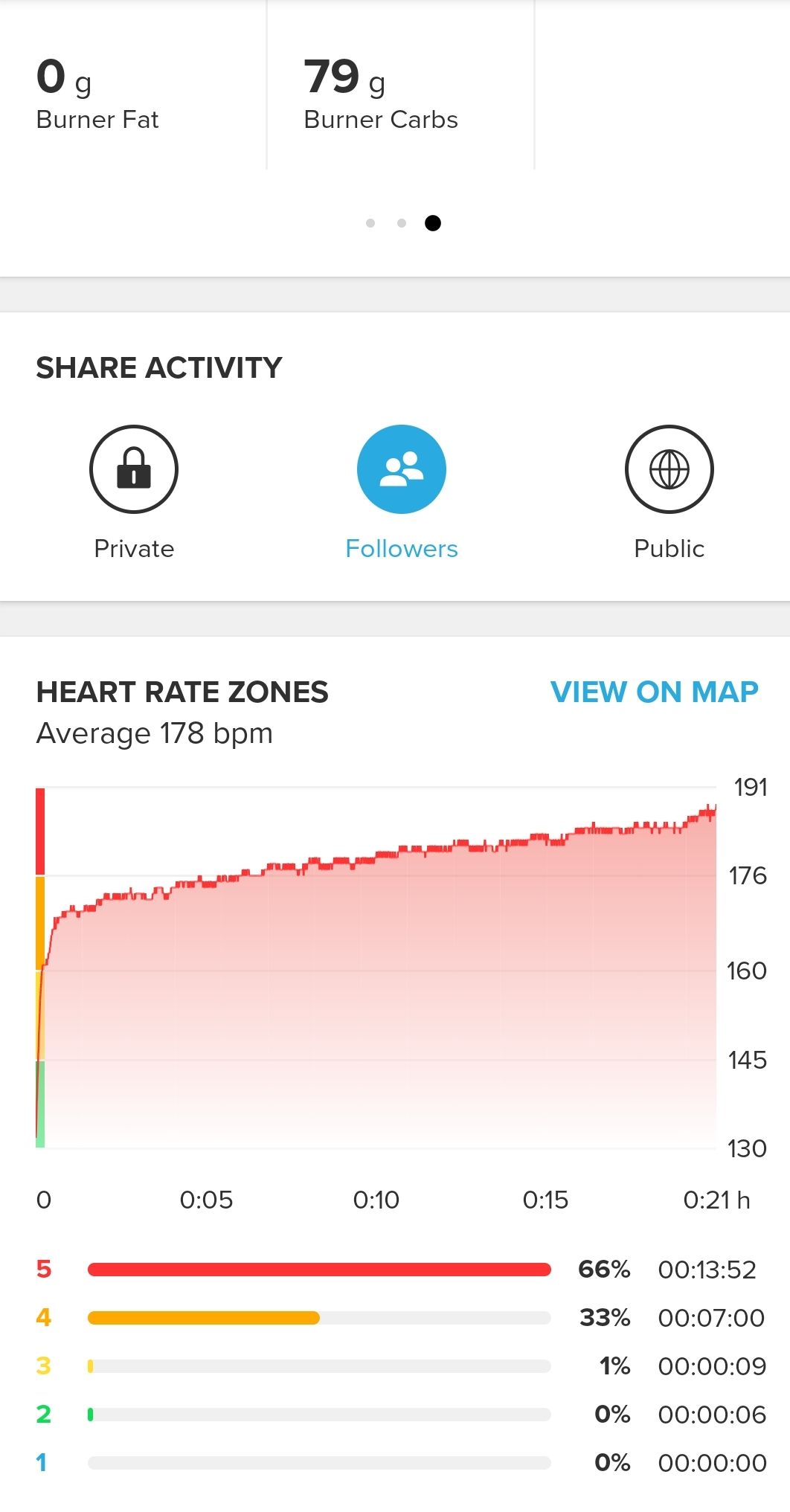5K effort won't burn any fat? O_o
-
@lexterm77 never had to buy tomato sauce when I lived in Italy, my family buys few hundred kilos of tomatoes in the summer and makes sauce for the rest of the year in bottles

-
I understand completely, I bought “tomato sauce” in a super market and I was so disappointed I started my own garden like my family did in Europe. I got maybe 5kg per plant 25plants this year, ate half of them raw if not more.
Nothing beats pasta & tomato sauce

This may be the last box this year.

-
@andrasveres nothing is up. It’s a habit. I just eat once. Only water in-between and training.
-
@dimitrios-kanellopoulos said in 5K effort won't burn any fat? O_o:
@andrasveres nothing is up. It’s a habit. I just eat once. Only water in-between and training.
Not to polute this topic, if you feel like we can open a new topic, but can you elaborate on why your started and how you arrive to that schedule, seen as benefits?
Been reading a bit on reddit, mostly for weight loose, and even started slowly with the 13h fast, but very curious about arriving to one meal only and having lot of energy -
@andré-faria said in 5K effort won't burn any fat? O_o:
very curious about arriving to one meal only and having lot of energy
I was wondering on the same thing… maybe the body got efficient on storing and using fuel over time.

-
@andrasveres I think evolution has formed us humans that way, that we can run on different ‘fuels’ depending on what was around in our habitat. The Inuit had only less carbohydrate rich food up there in the Arctic cold (besides same algae’s) , but lots of fatty cold water fish, while in an warmer and water rich environment there were plenty of carbs you did not to have hunt down but could just pick up. So I think al lot depends on you genetic “heritage” how you react on different energy types. But those humans who made it through the thousands of years are pretty sure the ones who could “fast/starve” for a while without loosing their ability to hunt or go out and gather food. The others are most likely not our ancestors
 . So I guess fasting and activity should (to a certain point where one has fasted too long) not be a problem and I could imagine that somehow it makes you more “committed” or gives you some “enhanced” feeling !?
. So I guess fasting and activity should (to a certain point where one has fasted too long) not be a problem and I could imagine that somehow it makes you more “committed” or gives you some “enhanced” feeling !? -
@chrisa said in 5K effort won't burn any fat? O_o:
So I guess fasting and activity should (to a certain point where one has fasted too long) not be a problem and I could imagine that somehow it makes you more “committed” or gives you some “enhanced” feeling !?
You could be right on this one as I perform much better in the morning on empty stomach, than on evening, when I already had some meal over the day.
-
@andrasveres or it might be because you are getting tired over the day?
-
@dmytro might be that too. If you ask me, I think it’s a complex equation. (for which I can’t give respectful result without transforming myself into a lab rat)

-
@andrasveres same here - I run best after some water or coffee in the morning without eating anything or only small amounts . But it’s for sure a very complex topic and I think it’s very individual
-
@chrisa said in 5K effort won't burn any fat? O_o:
@brad_olwin
„When glycogen is used up, muscle protein is broken down into amino acids. The liver uses amino acids to create glucose through biochemical reactions called gluconeogenesis“ (University of Michigan: https://www.uofmhealth.org/health-library/uq1238abc ) and that happens as a normal means to provide the body with energy when there are not enough carbohydrates and/or fat is available.While the liver does produce glucose from the carbon backbones derived from some amino acids, the muscle does not break down muscle protein and release AAs into the blood unless under severe fasting (starvation). This is rhabdomyolysis or severe muscle atrophy and only occurs in extreme circumstances. Muscle does not release amino acids when glycogen stores are low.
-
@brad_olwin said in 5K effort won't burn any fat? O_o:
Muscle does not release amino acids when glycogen stores are low.
Yes agree that thats not the case! I mean something different (perhaps my English is not good enough to make it understandable

 I recognised that muscles get being “built back/down“ at my own body, when I was still doing lots of strength training besides martial arts. I had very strong biceps and triceps muscles and a upper arm circumfence at around 40 cm back then and when I stopped working out (after university), this muscles got less quite fast (within months) and my arms got smaller, without changing my diet much. I think the body converts back muscle tissue when the stimulus, that caused them to grow in the first place vanishes and also when there is too less muscle building protein in the food you consume. But since I am neither a doctor nor a biologist this can of course be false. It’s how I understand it and experienced it by myself.
I recognised that muscles get being “built back/down“ at my own body, when I was still doing lots of strength training besides martial arts. I had very strong biceps and triceps muscles and a upper arm circumfence at around 40 cm back then and when I stopped working out (after university), this muscles got less quite fast (within months) and my arms got smaller, without changing my diet much. I think the body converts back muscle tissue when the stimulus, that caused them to grow in the first place vanishes and also when there is too less muscle building protein in the food you consume. But since I am neither a doctor nor a biologist this can of course be false. It’s how I understand it and experienced it by myself. -
@andré-faria lets do this
-
@chrisa OK, I am a biologist, Professor of Molecular, Cellular and Developmental Biology. My laboratory research is skeletal muscle regeneration, aging of skeletal muscle and skeletal muscle stem cells. When muscle is not used or in a cast it does atrophy (get smaller). How this happens is not completely understood but the protein lost is likely used in the muscle and is not sent to the liver. During starvation or severe stress to muscle protein escapes muscle or is released and it is not healthy.
You are totally correct about the liver, whether low carb diets are healthy or not is debatable but processed foods with processed sugar are a problem, especially for controlling weight. The low carb fad is a fad and very few people that say they are on a ketogenic diet are actually ketogenic as it is very hard to do. Glucose is the best fuel source for intense efforts but if you want to train your muscle to use more fat as a fuel source the efforts need to be below the aerobic threshold (you can hold a normal conversation while running).
-
@brad_olwin oh wow, that’s so great that you as a professional scientist can help me and the others to understand, thanks a lot! Actually I find it very interesting that we think we “know“ how processes are happening but in reality it’s not finally clear, how they really work on a cellular or molecular level, like you say it is the case when muscle is being reduced due to lacking stimulation. I was thinking the same when the Nobel prizes in medicine we’re given to scientists who found out how the processes of sensing temperature and pressure (?) are working - something as a layman one would consider obvious and simple but on the professional scientific level seems to be very complex.
Concerning ketogenic diets, I made the experience that it seemed to make me loose excess weight fast, but I can not say if the reason is purely because of metabolism changes or if just by not drinking alcohol and eating sweets I just had a a higher calorie deficit than usual.
I found it not very comfortable and changed to a „normal“ diet and now enjoy pasta and the many breads we have in Germany and from time to time a glass of red wine again, though I rarely drink alcoholic beverages anymore since then. Somehow I recognised that I don’t need them on a daily or even week(end)ly basis

-
@Brad_Olwin speaks the sport science gospel, I’ve been studying this a lot lately. Because of that my food pyramid has 3 sides: protein, complex carbs, and fat!
Back on topic though, the run in this thread is well above aerobic threshold so sugar was burned as I stated earlier, not fat.
-
You can think of it as economy model of supply/demand. What body sees no use for it does not spend energy maintaining it.
Astronauts pee out calcium from their bones as soon as body “sees” it does not needs it in micro G, it does not matter that their ancestors spent 4.5 billion years evolving under gravity. What did matter in past is that ancestors evolved 4.5 billion years where a cost/benefit situation is a reality and it applies under situations where food was scarce and ones that not utilize cost benefit dont simply survive.
-
I thought I recognised “Rhabdomylosis”: That’s what Aussie mountain biker Craig Gordon suffered from after the “24 hrs of Adrenaline” World MTB championships in 2006 (as featured in the docu-film “24 Solo”) He pushed himself incredibly hard and was hospitalised with it after the race…actually the article I just checked said it resulted in him being on dialysis for two days.
btw: “24 Solo” is a documentary about 24hr solo mtb racing if anyone hasn’t seen it - very good and worth a watch.
-
@jim-russell said in 5K effort won't burn any fat? O_o:
Rhabdomylosis
I remember listening to a few podcasts where elite runners have had it, not good at all and sounds like a very serious condition
I’m just watching a film on Michael McKnight attempting to break the Colorado Trail FKT, he’s a low carb ultrarunner. He even did a 100km race a while back on zero calories just to see if it can be done - think he finished in 17hrs and change which is darn impressive. Pretty sure he also won the Moab 240 last weekend
But diet aside, I think you need to find what works for you as no two athletes/people are going to be the same (unless you’re a twin)

-
@dimitrios-kanellopoulos said in 5K effort won't burn any fat? O_o:
I don’t eat carbs and I do best efforts. So where does my energy come from ?
The perhaps answer to this comes to studying blood glucose and how your body metabolizes fat but also when and how it’s stored.
I love to eat crabs, if you don’t eat crabs, do you eat any fish or lamb?
